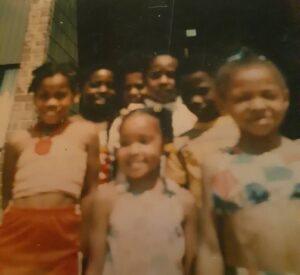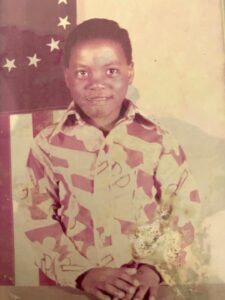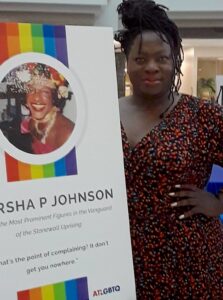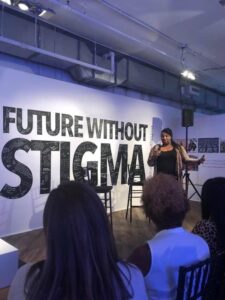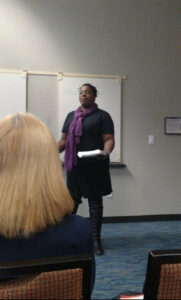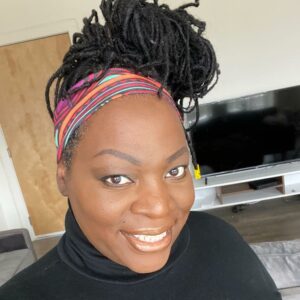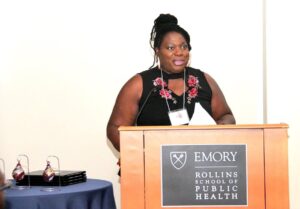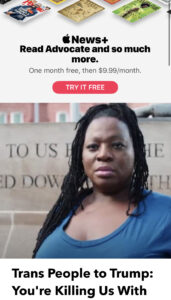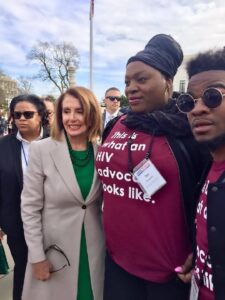Tori Cooper is a health and equity advocate, community organizer, author, and leading figure in the transgender and HIV communities.
Tori was born on May 21, 1970. She was educated at predominantly white schools in Virginia. As a Black child who grew up without siblings, Tori felt like an outsider with nobody to bounce ideas off of, so she wrote stories in which she gave herself sisters and married them off to famous men – men who, in retrospect, she had crushes on. At school, Tori never thought she was like the other boys around her, although she also knew she was not like the girls.
After high school, Tori moved away to college at an HBCU, where she earned her Bachelor of Arts degree in Human Services. Throughout the rest of her career, she was aware of the additional access that her college education afforded her, and pledged over and over to use that privilege to bring other Black and trans people into those rooms with her. She came out to her mother as gay at age nineteen during her parents’ turbulent divorce. Afterwards, she felt as though a huge weight had been lifted from her shoulders; she never had to hide that part of herself again.
Tori’s life has been repeatedly devastated by the HIV/AIDS pandemic. When Tori was in middle school, her mother’s cousin died of AIDS complications on the same day her maternal grandfather died of cancer, which gutted her family. One of her childhood friends, Aubrey, died of complications from AIDS when Tori was 23. Aubrey was the first person to see that Tori was going to “make a beautiful woman one day,” before even Tori herself.
In the early ‘90s, Tori was living in New York when she started her physical and medical transition, ordering chest-enhancing creams from the backs of “dirty magazines” that used caffeine to irritate her skin and temporarily enlarge her bust. When she eventually transitioned socially, she kept her birth name Tori.
Tori also underwent a change in her working life, switching from corporate to non-profit HIV work. During this period she was very studious, eager to soak up everything she needed to know to understand the process behind the decisions made around HIV. She began working as a public health educator, focusing on HIV prevention and care. She began to get involved in advocacy for greater equity in HIV healthcare, particularly regarding underfunding for Black people living with HIV. In 2015, she founded and self-financed Advocates for Better Care Atlanta, LLC, a consulting firm created to educate and empower marginalized people, particularly prioritizing the needs of transgender people and those living with HIV.
Tori now works for the Human Rights Campaign (HRC), the largest LGBTQ advocacy organization in the United States. She serves as the Director of Community Engagement for HRC’s Transgender Justice Initiative, where she advocates for policies and practices that support the transgender community.
In 2021, Tori was appointed to President Joe Biden’s Advisory Council on HIV & AIDS. This marks the first time that an out Black transgender person has served on the council.Tori has also been featured in the documentary Silent Epidemic, talking about the approach to trans issues and HIV in the South. She says it “took 20 years to become an overnight success.”
Tori is guided by a strong spiritual and religious foundation, and even went briefly to theology school at one point. “In the same way that religion is used to beat some people down,” she shares in her OUTWORDS interview, “I got out of it that I am powerful and wonderfully made.”




